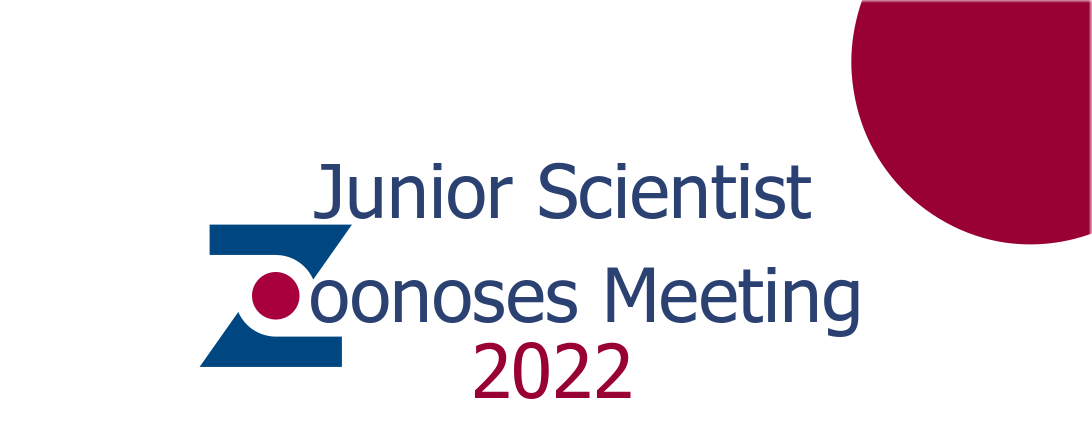
The Junior Scientist Zoonoses Meeting 2022 was a get-together of young scientists from the field of zoonoses research. For many, the meeting in Hannover was the first meeting in presence since the beginning of the corona pandemic and a valuable opportunity to network, learn new things and present their own research.
After two years in virtual space, the Junior Scientist Zoonoses Meeting returned to the real world in 2022. The annual meeting for junior scientists the field of zoonoses research took place from June 23 – 24 in Hannover, Germany. With beautiful summer weather and a view of deer snoozing in the “Tiergarten” (Fig. 1), the conditions could not have been better as Prof. Dr. Thomas Pietschmann (TWINCORE) and Dr. Kim Grützmacher (GIZ/ Museum für Naturkunde Berlin) opened the event with exciting insights into their personal career paths. Prof. Pietschmann presented a study from 1993 [1], which showed that talent alone is not enough to be excellent at something, but hard work is a crucial factor in the equation. From his own experience, it is equally important to create a personal balance between work and recreation, to have good mentors at one's side, to have a good working environment and a suitable research topic, and to find ways to stand out from the crowd. Dr. Grützmacher illustrated how individual one's career path can be with her inspiring talk about her own career path, which brought her to the interface of science and politics. By translating research into political action, she sees an opportunity to address the massive challenges to global health posed by climate change and biodiversity loss that we are facing on our planet.
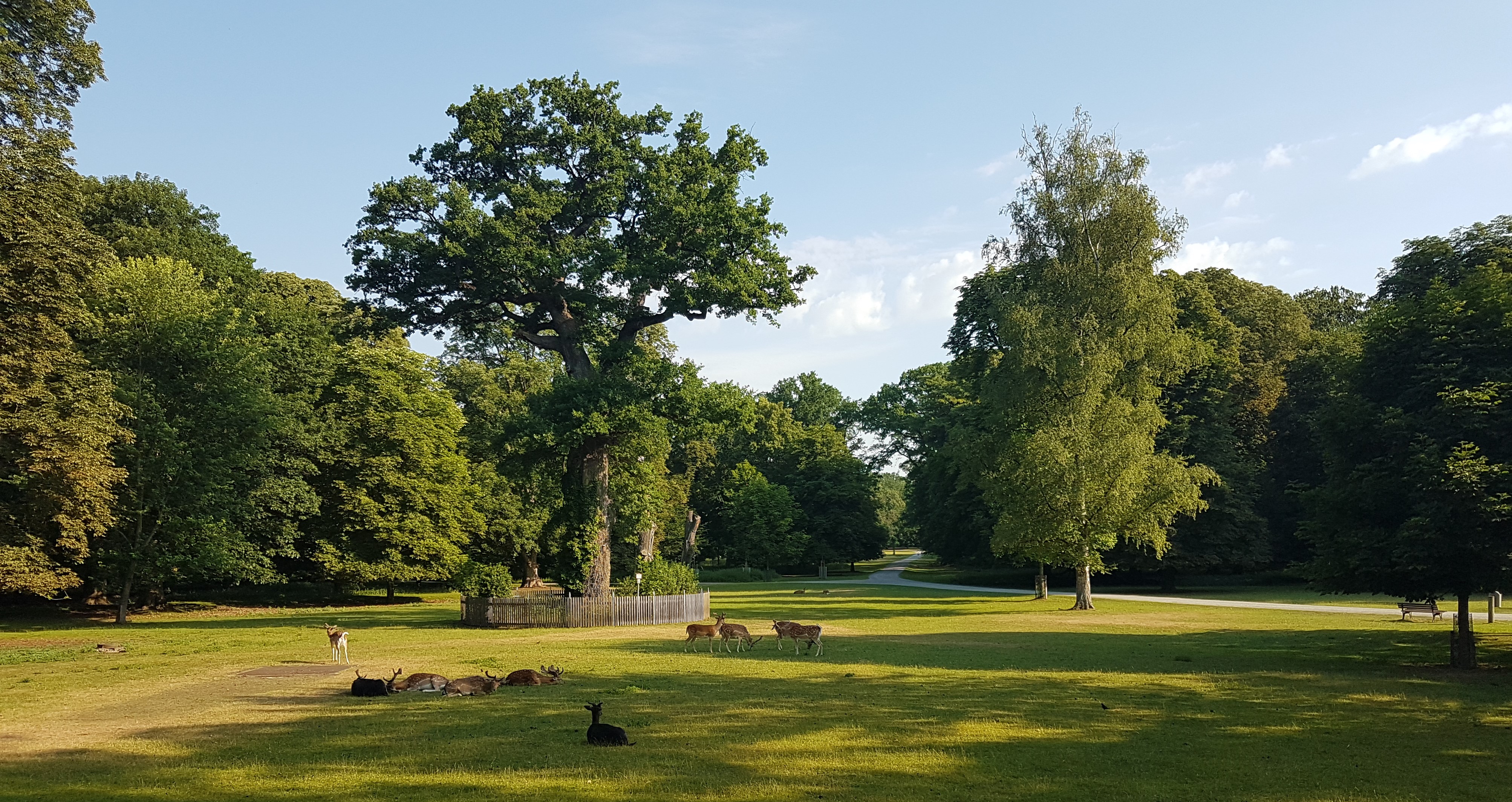
Fig. 1: The view from the conference rooms into the “Tiergarten” added to the pleasant atmosphere at the JSZM 2022 (photo: Dana Thal, Zoonoses Platform)
The career insights were followed by an initial poster session in which participants were able to present and discuss their own research work in small groups (Fig. 2). The discussions could then be continued over lunch on the shady restaurant’s terrace.
Freshly strengthened, the afternoon session began with Dr. Nicole de Buhr (TiHo Hannover) and Dr. Björn Corleis (Friedrich-Loeffler-Institut) presenting their research projects under the umbrella of the Zoonoses Platform. Research data on the role of NETs (neutrophil extracellular traps) in co-infections were presented as well as a One Health vaccine approach against tuberculosis, thus providing a small insight into the diverse zoonoses research projects in Germany.
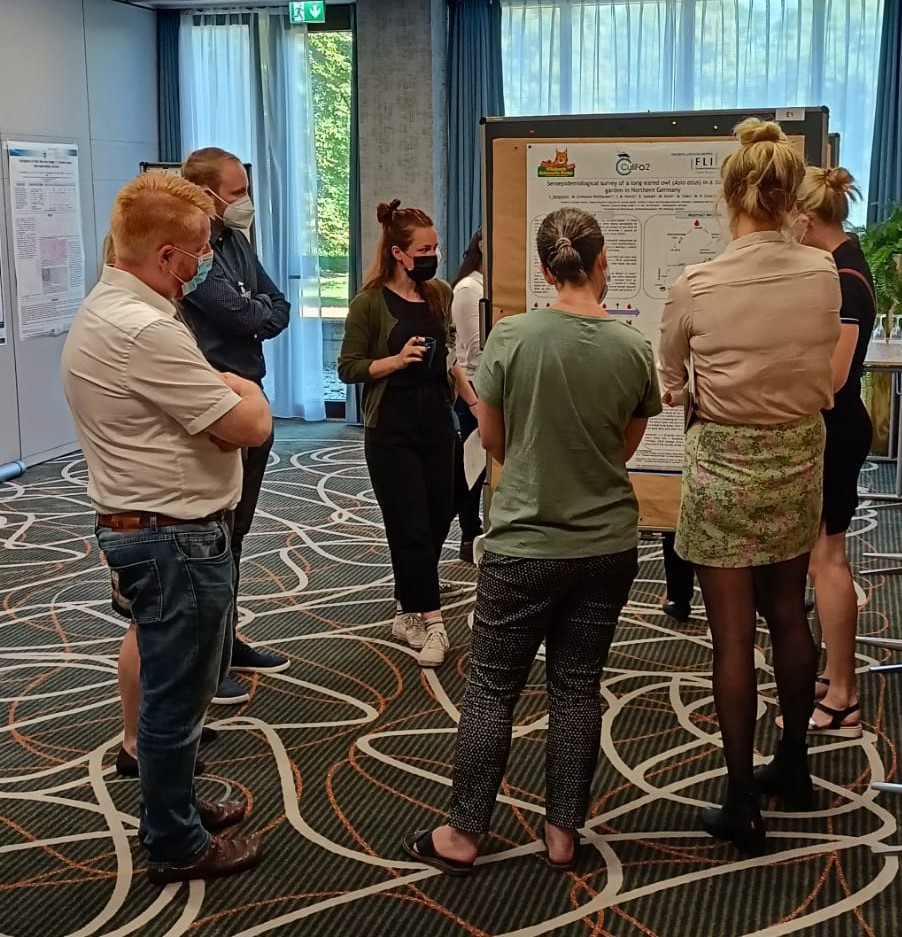
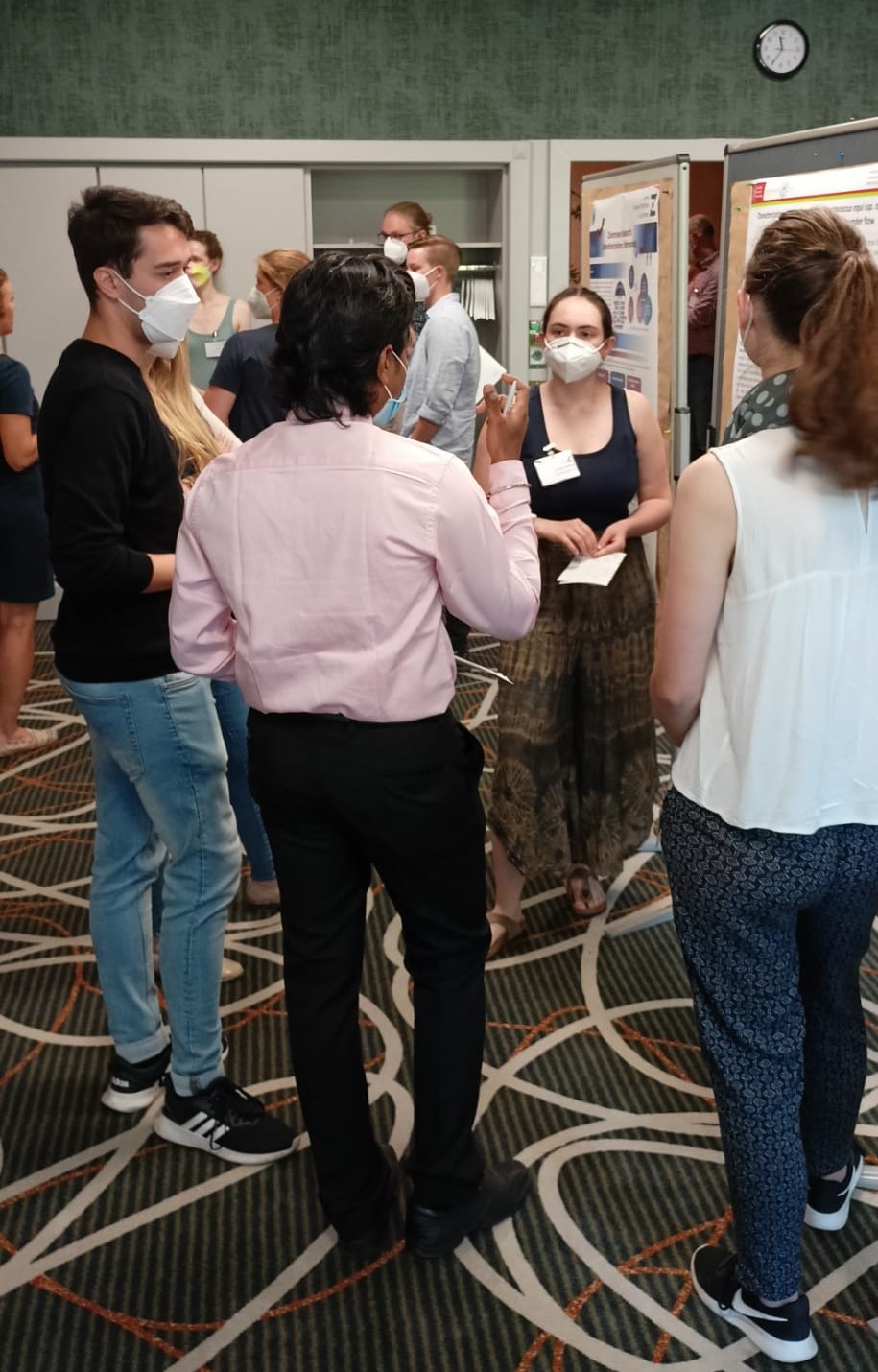
Fig. 2: The poster sessions, in which participants presented and discussed their research data, were an essential part of the JSZM 2022 (photo: Sebastian Sprengel, Zoonoses Platform)
Before the meeting moved to the University of Veterinary Medicine (TiHo) Hannover, where Prof. Maren von Köckritz-Blickwede gave unique insights into the work at the Research Center for Emerging Infections and Zoonoses (RIZ) and into a S3 laboratory, the election of the new young scientists' representative took place. Sabrina Clever, PhD student at the TiHo Hannover, won the election. She will represent the interests of the young scientists within the Zoonoses Platform from October 2022.
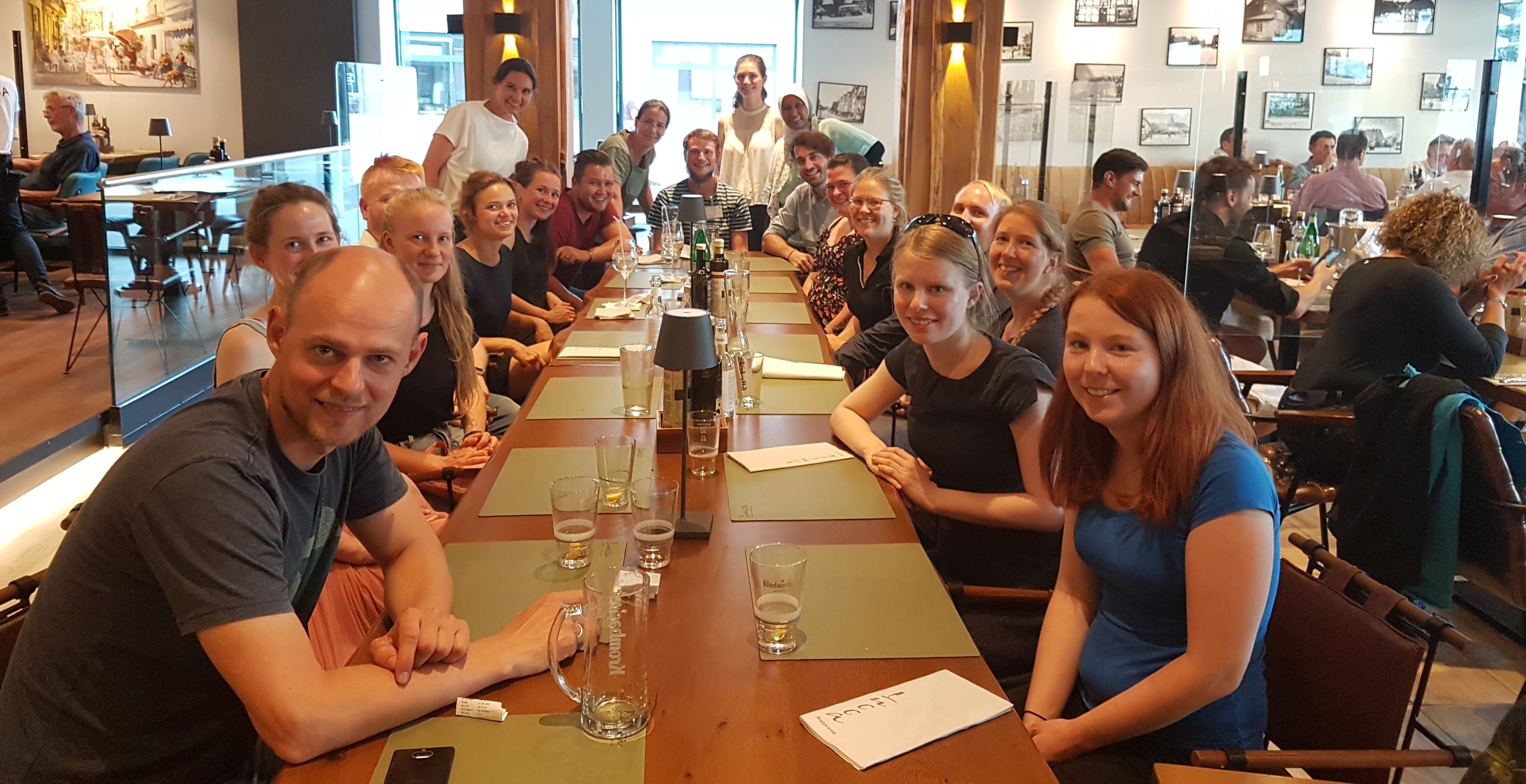
Fig. 3: The first day of the JSZM 2022 ended with pasta and pizza at an Italian restaurant (photo: Zoonoses Platform)
The second day of the event started with an international component: Prof. Dr. Lidwien Smit (Utrecht University) presented her research on One Health and environmental epidemiology. Using research data on air pollution from agriculture, the distribution of antimicrobial resistance in ecosystems, and the SARS-CoV-2 outbreaks in Dutch mink farms, Prof. Smit highlighted the importance of not neglecting the environment in One Health approaches. In addition, she stated, it is essential in the One Health context to establish cooperation and communication channels between individual disciplines and departments before a possible emergency situation such as the coronavirus pandemic occurs.
Inspired by the presented research projects at the interface of environmental, human and animal health, the participants started the next round of poster presentations. After the last lunch together, the meeting was dedicated to methods in zoonotic research. Bob Fregin, who studied electrical engineering, presented an image-based method for cell differentiation that he is working on as a doctoral student in the biomechanics working group at ZIK HIKE at the University of Greifswald. The method allows differentiation of individual cell populations based on their biomechanical properties and ensured that an excursion into physics was followed with great interest by the participants. No less interesting was the presentation by Dr. Christian Sieben, who heads the Nanoscale Infection Biology group at the HZI in Braunschweig and works with super high-resolution microscopy. The technique allows visualization of individual proteins in virus-cell interactions, making processes visible that the human eye would normally never be able to see.
The zoonoses quiz, which was actually planned for the end of the meeting, was replaced by a contribution from Dr. Hendrik Scheinemann, who works at the Bundeswehr Research Institute for Protective Technologies and CBRN Protection in Munster. Because Russia's war against Ukraine also influences zoonoses research, be it through disinformation campaigns or protection against/ control of zoonoses in the military context.
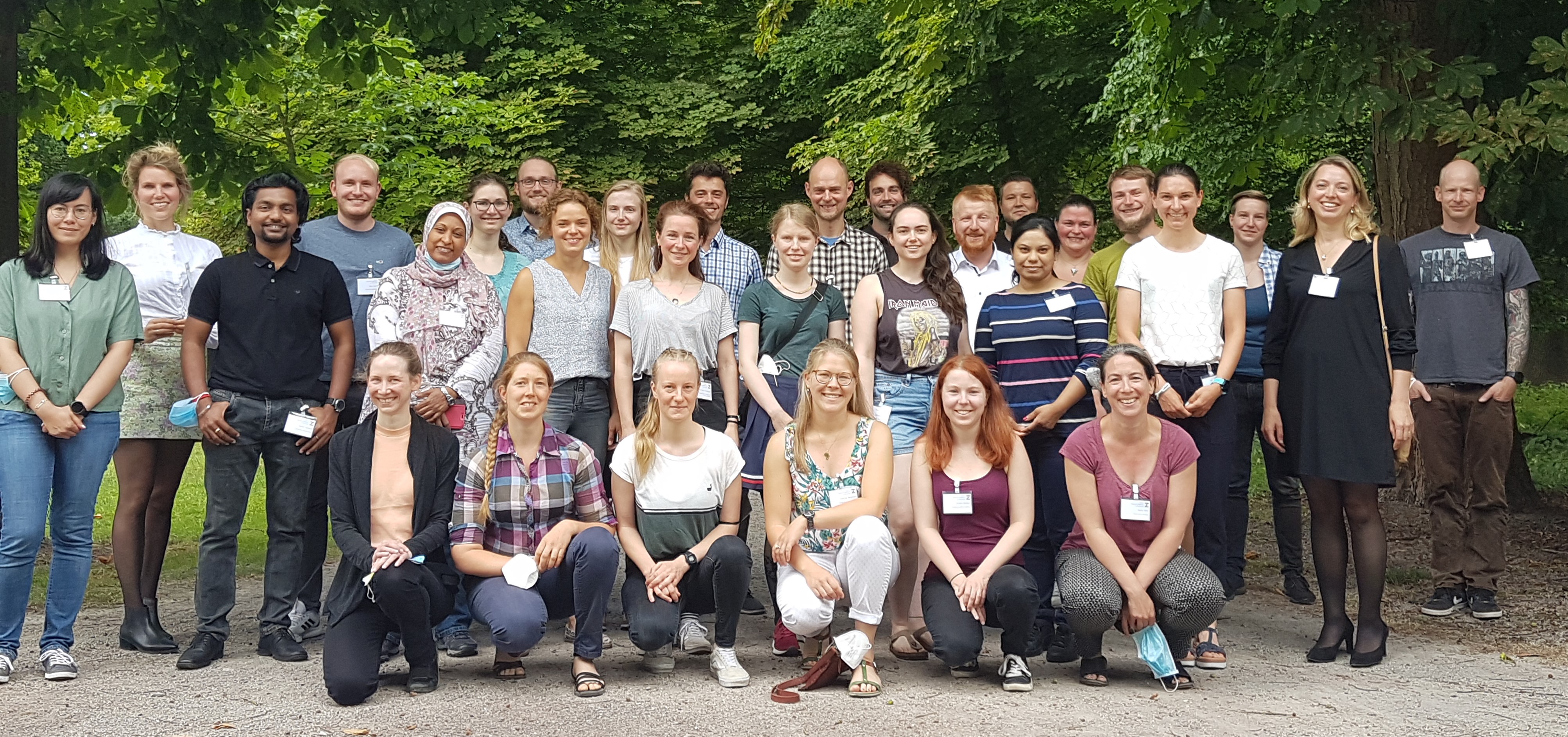
Fig. 4: Participants of the JSZM 2022 in Hanover (Photo: Sebastian Sprengel, Zoonoses Platform)
This excursion marked the end of JSZM 2022, which once again highlighted the diversity of zoonoses research in Germany and its relevance to numerous challenges of our time. The commitment and the energy of the PhD students and PostDocs who participated in the meeting make us confident that the next generation of scientists will and can take on the tasks ahead. The Zoonoses Platform will try to support them on their way.
Thank you to all speakers and participants of the meeting!
Text: Dr. Dana A. Thal
References:
[1] ERICSSON, TESCH-RÖMER, & KRAMPE Psychological Review 1993, Vol. 100. No. 3, 363-406: The role of deliberate practice in the acquisition of expert performance



